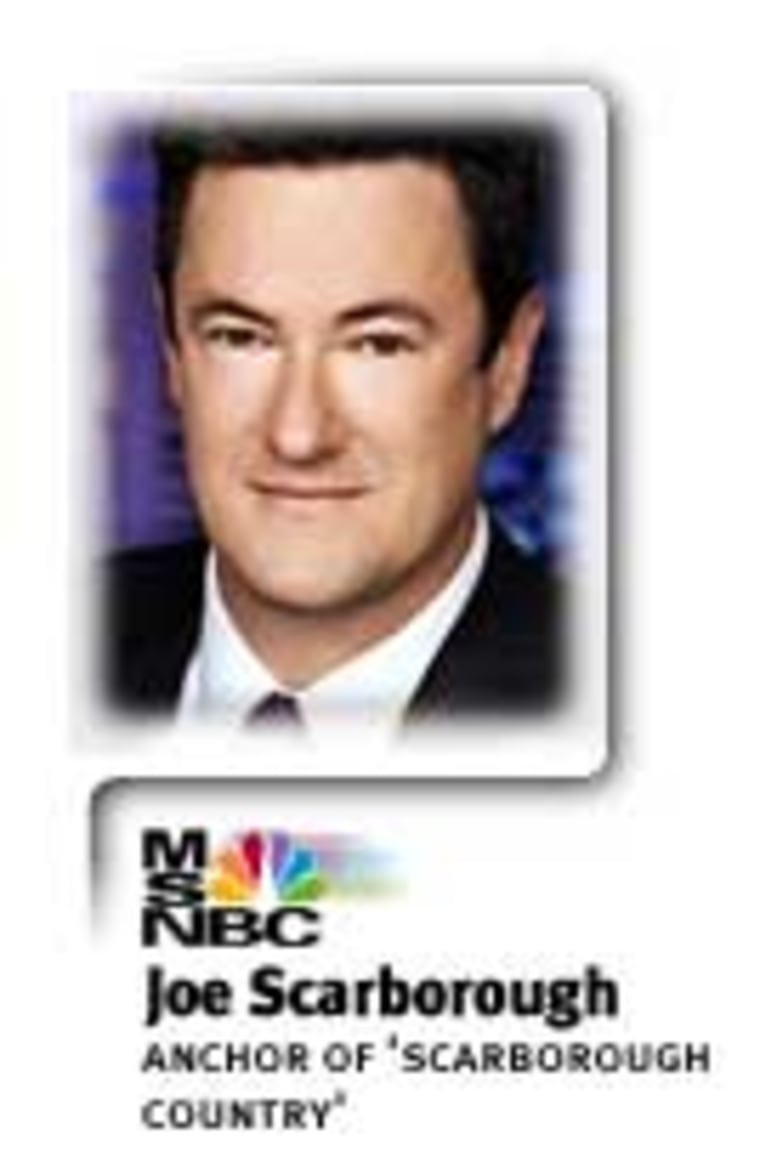Say the name Larry Flynt and it is going to set off a reaction one way or another. He’s a famous pornographer, an outspoken pundit, and self-described social outcast. Larry Flynt, the publisher of “Hustler” and First Amendment activist, joined ‘Scarborough Country’ Wednesday to talk about Hollywood, civil liberties and the federal government.

JOE SCARBOROUGH, HOST: You describe yourself as a champion of the First Amendment. A lot of your critics may ask the question, is there anything that you don’t consider to be out of bounds to publish in your magazines.
LARRY FLYNT, PORNOGRAPHY PUBLISHER: I am an absolutist when I come to the First Amendment. But, when you get into issues such as child pornography, that’s a whole different decision. You’re violating the rights of someone not old enough to speak for themselves. But, as far as images of whatever you’re doing, I think they should be protected by the First Amendment.
SCARBOROUGH: So you think, for instance, if we’re not talking about pedophiles, what about bestiality? Is that fair game for a publication for pornography magazines?
FLYNT: We stay away from necrophilia, bestiality, and pedophile just because we feel that they’re out of the norm. They’re issues of sexuality that people are just not interested in.
SCARBOROUGH: You say you’re an absolutist when it comes to the First Amendment. But, for you personally, you stay away from child sex. You stay away from bestiality and things like that. Do you think the First Amendment protects images of young children having sex?
FLYNT: I actually do, Joe, even though I don’t condone it. And it may sound like a very cruel thing to say. But maybe if some of those images were made available and people could actually see the extent of what is actually taking place, more can be done to prevent it.
SCARBOROUGH: But, hasn’t pornography on the Internet opened up an entirely new industry to some of these people who prey on young children and get involved in child pornography, and then try to sell it to Americans and people across the world?
FLYNT: That’s true. But you know, technology has changed everything. You know, in the Victorian era, everyone had their leather bound editions of pornography. But, today, you know, the poor man’s art museum is at the local video store or book store or Internet. The genie is out of the bottle, so to speak.
SCARBOROUGH: But, again, though, I mean, child pornography, though, you don’t consider child pornography to be art though, do you?
FLYNT: No, I do not. But I think that the people should be protesting not for just the production of pornography, for but violating the rights of people who are not old enough to speak for themselves.
SCARBOROUGH: Tell me about your efforts to — or at least lawyers that have worked for “Hustler” before — about their efforts to roll back some of these obscenity laws.
FLYNT: I’m glad you asked that question. Everybody is familiar with the recent sodomy decision in Texas, which was a landmark — 5-4 decision abolishing the law. Now, the average person never read Justice Kennedy’s opinion, who wrote the majority opinion.
And he said, “I am more concerned about the liberty of many than the morality of one.” So that was music to the ears of people who had been fighting these censorship battles of putting out these fires ever since Miller versus California in 1973. And my attorney recently, in a case in Cincinnati, has filed to ask that the obscenity laws in Ohio be declared unconstitutional, simply because of that particular sodomy case.